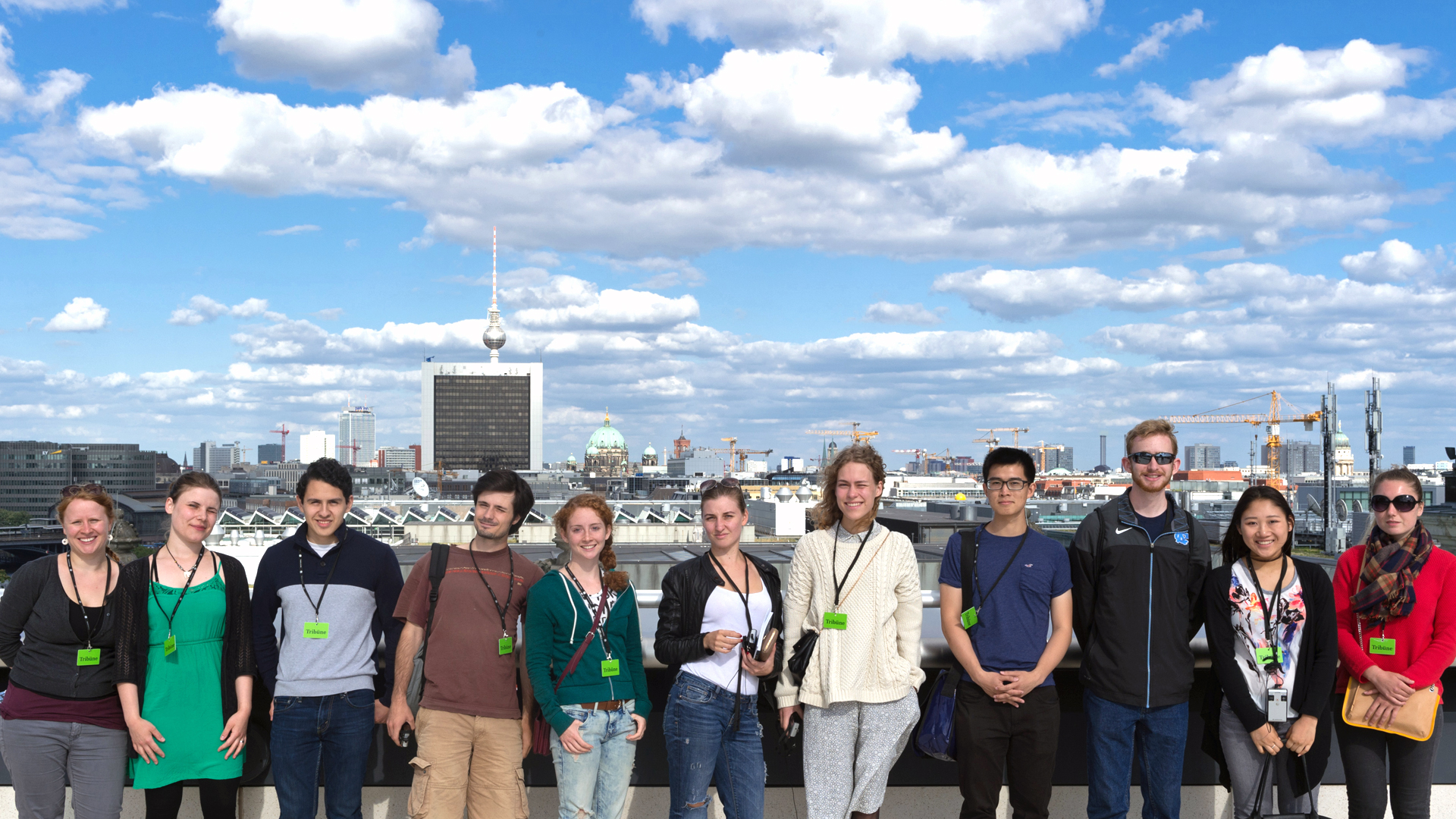Summer Schools in Berlin: FUBiS celebrates 20th anniversary
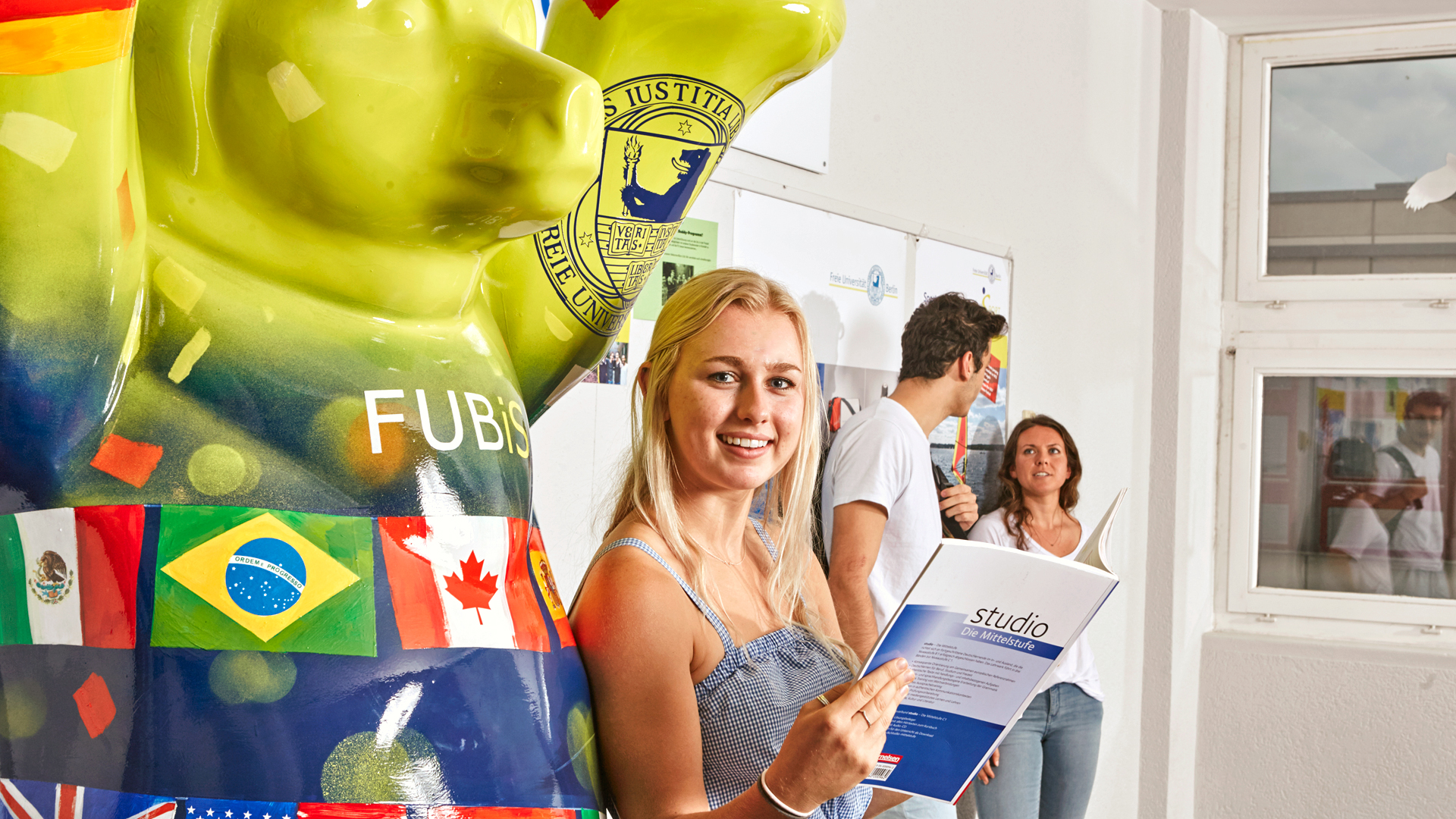
26.09.2018 | Berlin's summer schools open their doors every year and enable international students to attend courses at Germany's top universities during the semester break.
For 20 years, FUBiS (Freie Universität Berlin International Summer and Winter University) has been an integral part of Berlin's summer school program. This year, FUBiS is offering the course "Global Challenges – Sustainable Futures", with Dr. Andrezej Ancygier.
Summer and Winter Schools - What the Freie Universität Berlin has to offer
International students especially enjoy attending summer and winter schools in Berlin. The universities offer the opportunity to take part in challenging seminars during the semester break, exchange ideas with other students, learn the German language, and even earn college (ECTS) credit.
The Freie Universität Berlin International Summer and Winter University (FUBiS) is marking its twentieth anniversary. And this year will feature courses in various disciplines, such as "Architecture in Berlin: A Walk through History" and "German Philosophy: From Kant to Habermas".
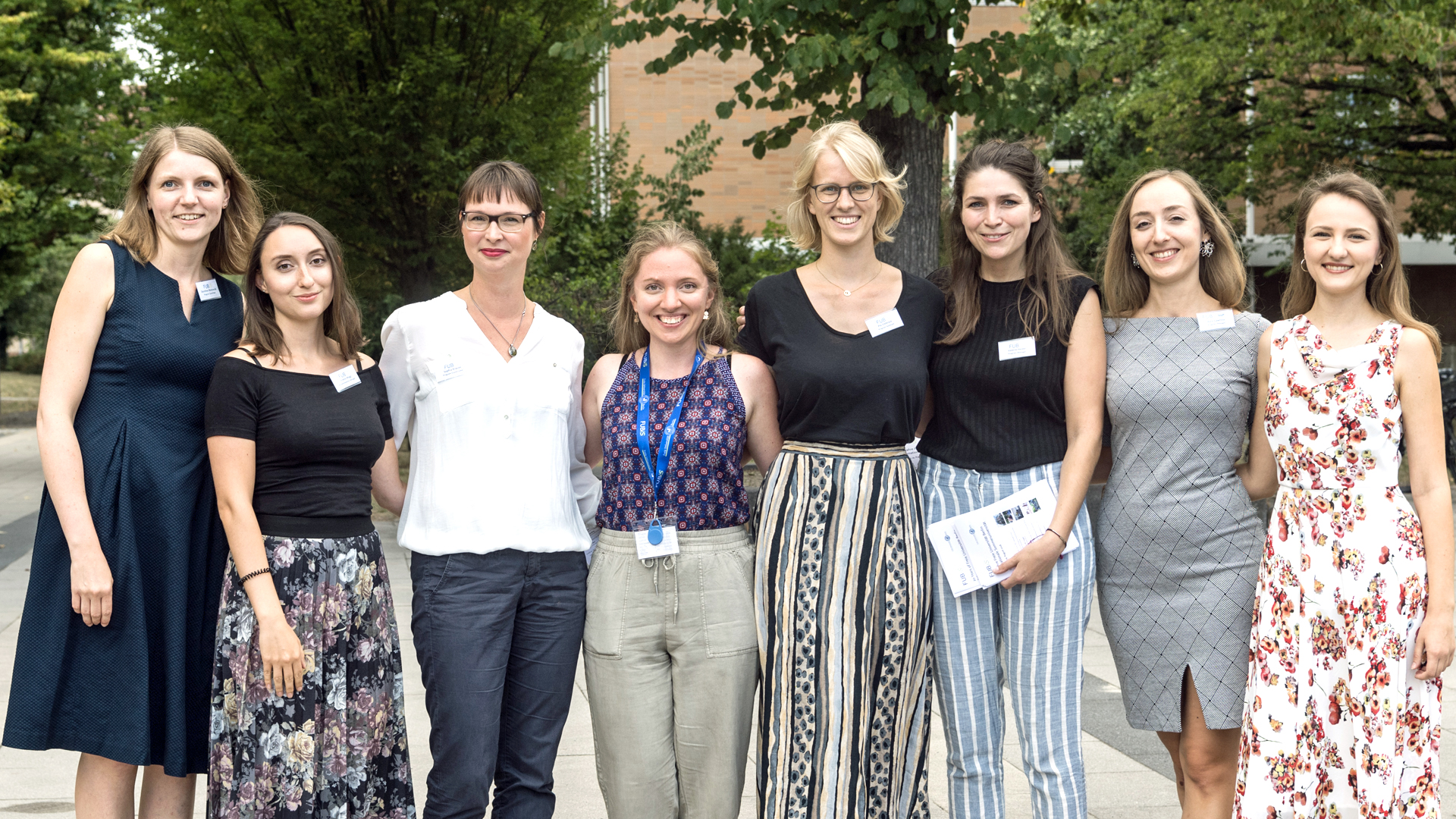
FUBiS - Summer School of the Freie Universität Berlin
The heart of FUBiS is its young team, which support the international students in Berlin.
In an interview, Program Manager Kyra Gawlista gave us a look behind the scenes of an international network university.
Brain City Berlin: Who is the target audience for FUBiS' offerings?
Kyra Gawlista: Our offerings are aimed at international undergraduates, but they are basically open to anyone who's interested.
Brain City Berlin: What does the FUBiS team take care of?
Kyra Gawlista: The FUBiS team takes care of all concerns and the well-being of the participants here in Berlin. We organize accommodation in host families, student residences, or individual apartments, as desired. During the program, we offer excursions to Berlin and other German cities. We provide support in everyday matters, such as arranging appointments with doctors, and of course give tips and information about Berlin, for example, where to find the best flea markets, clubs, or cafés.
Brain City Berlin: What is offered to the students each year?
Kyra Gawlista: There are three FUBiS terms each year: Terms I, II, and III. Term I is three weeks long and takes place in January. Term II starts at the end of May and is our longest term, running for six weeks. It is immediately followed by the four-week Term III, which begins in mid-July. The two summer terms are often combined. Some students also use our German courses to prepare for a subsequent semester abroad at a German university.
Brain City Berlin: What distinguishes the FUBiS Summer School from other programs?
Kyra Gawlista: What makes FUBiS special is that students can attend both German language lessons and subject courses at their academic level during their semester breaks and earn internationally recognized college credit. They also get an initial impression of what it is like to study abroad and get to know Berlin. The courses are taught predominantly in English, which lowers the inhibition threshold for many international students to participate and study abroad.
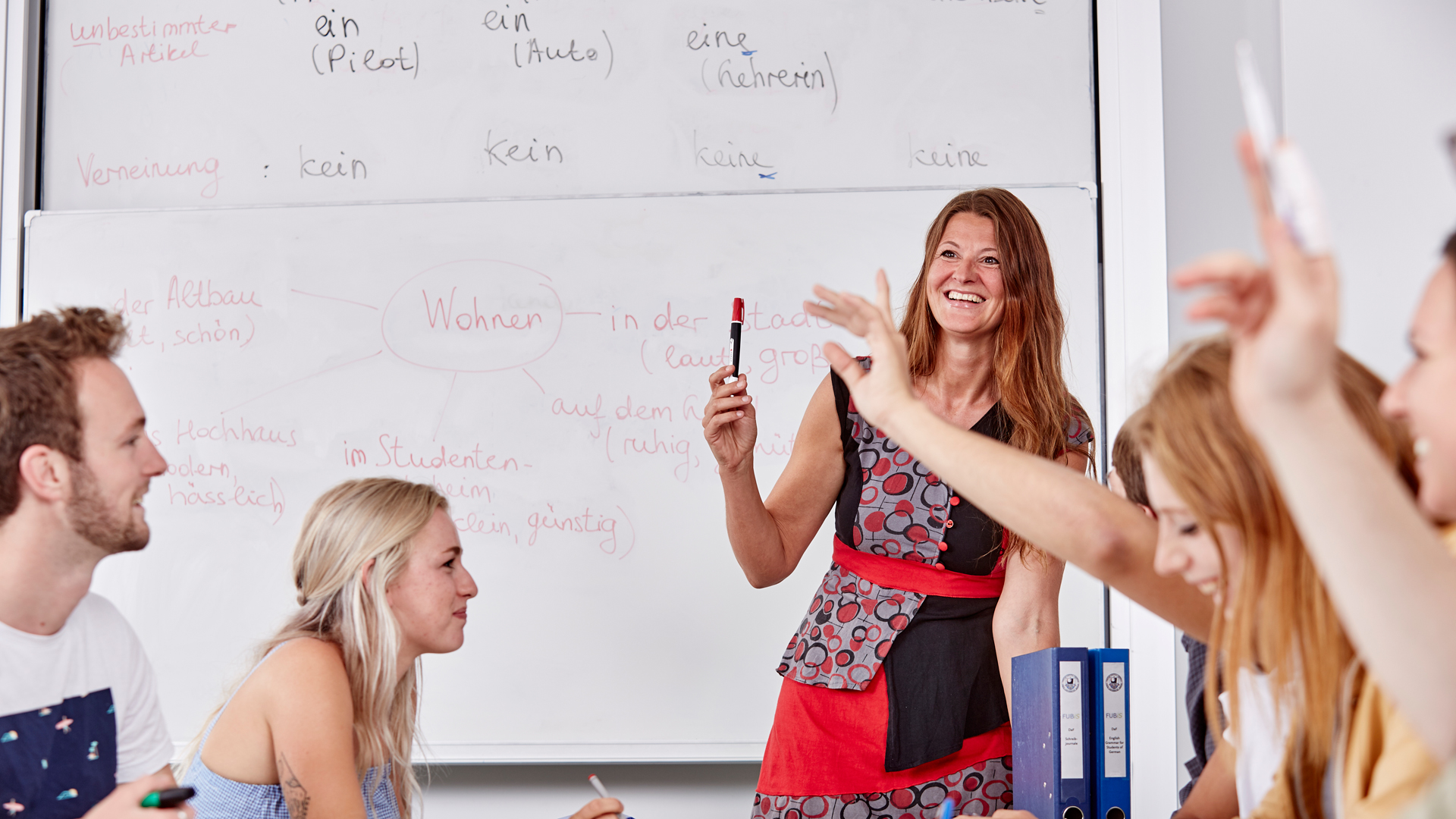
Brain City Berlin: What are the advantages of seminars with mainly international students?
Dr. Andrzej Ancygier, lecturer of the course "Global Challenges – Sustainable Futures": This course brings together students from different countries and cultures. During the term, it's easy to observe how well the group integrates itself and exchanges ideas.
Dr. Andrzej Ancygier: The broad subject of the course, global problems, makes it possible to address different topics: from climate change to populism to the problem of cameras secretly installed in women's toilets in South Korea. This allows us to consider causes and solutions that could work in different countries. At the end of four weeks, you realize how much we have in common, regardless of cultural differences.
Brain City Berlin: What are the particular challenges of a seminar aimed at international students?
Dr. Andrzej Ancygier: When I taught my first FUBiS course, I wondered to what extent I could criticize my students' home countries, for example, China for human rights violations, India for violence against women, or the USA for Trumpism. But in the end, there's no room for self-censorship in this class. All of the students are always invited to present their own point of view and their own perspective. We all learn from that.
Brain City Berlin: How diverse are the participants (in terms of origin, academic background, etc.)?
Kyra Gawlista: In total, around 600 participants from over 40 countries attend FUBiS every year. The majority of students come from the USA, South Korea, and China, closely followed by Latin America. Most of the participants are in the second or third semester of their undergraduate studies. Some master's students and professionals are also always present and every now and then retired participants join us who are interested in a specific subject or in learning the German language.
Brain City Berlin: How well does the cooperation with the participants work?
Dr. Andrzej Ancygier: Very good, most of the time. It helps a lot to show the students that all the other participants and also the teacher are able to learn something from their experiences. The international character of the course is its greatest advantage and the participants appreciate this and often take the initiative. Last term, one student offered to lead the others in yoga, after which they discussed the questions for the exam.
Brain City Berlin: Why is Berlin the ideal location for international students?
Kyra Gawlista: As a center for science and research, Berlin has a lot to offer to international students. All FUBiS courses can draw on the historical, cultural, and political resources of the city and classroom excursions reinforce what has been learned in the classroom and how it can be directly applied and deepened.
Brain City Berlin: How did the "Global Challenges – Sustainable Futures" come to be offered at FUBiS?
Kyra Gawlista: When selecting the courses offered, we take care to offer particularly relevant and important topics. Of course, this includes the topic of "sustainability". The course "Global Challenges – Sustainable Futures" in its current form has been an integral part of the FUBiS program for 5 years. But even before that, there were courses in our portfolio focusing on the environment and sustainability.
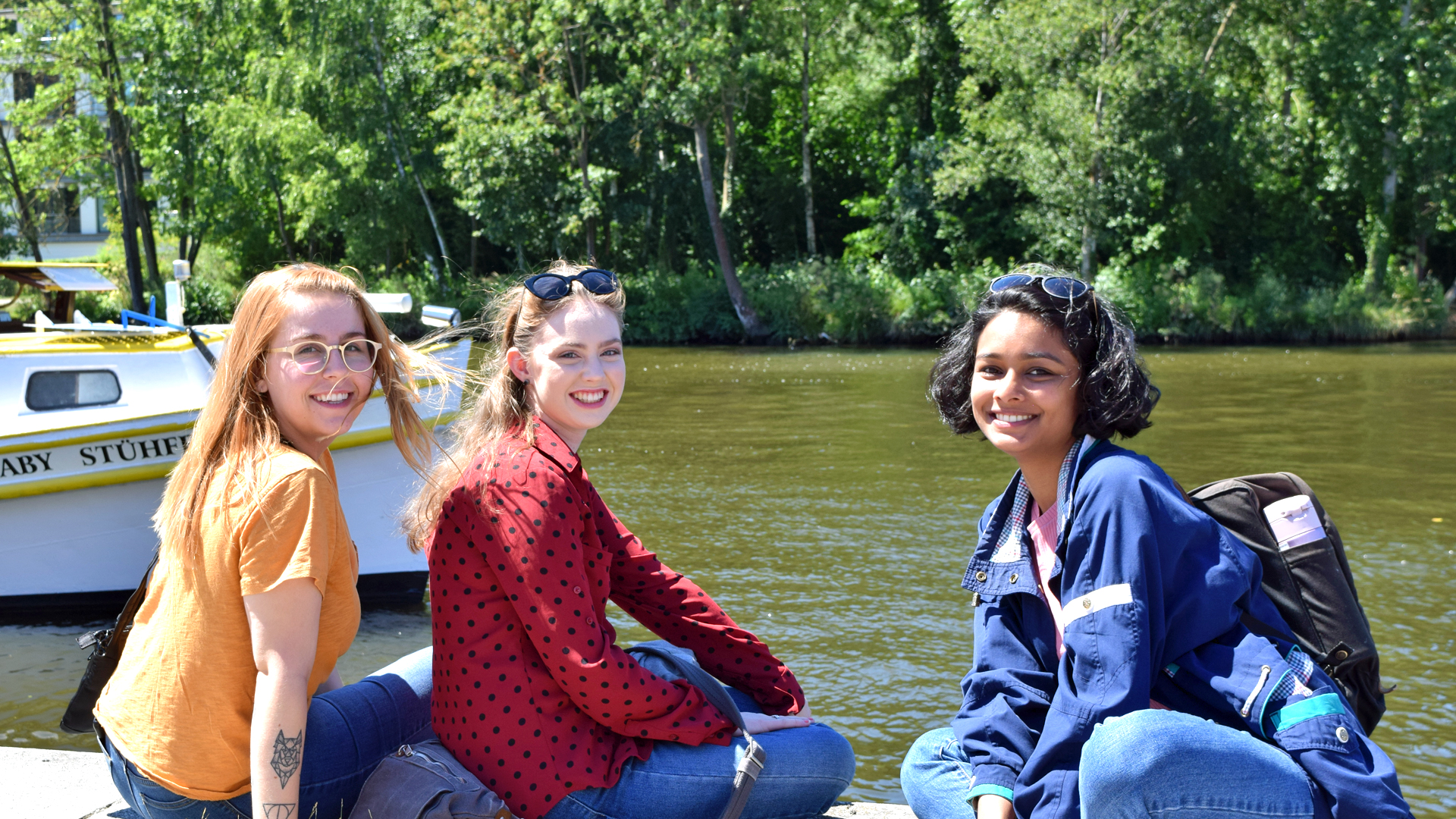
Brain City Berlin: What are the most important points to be addressed in the course?
Dr. Andrzej Ancygier: The focus is on global economic, political and environmental problems. In the second part of the course, we look for solutions, especially in relation to climate change.
Brain City Berlin: To what extent does the course fit into the FUBiS offerings?
Kyra Gawlista: The courses offered by FUBiS cover a broad spectrum of humanities and social sciences and thus reflect an important part of the profile of FU Berlin. The topic of sustainability, one of the most important topics of the future, is a must.
Brain City Berlin: What is the level of interest or demand in the subject of sustainability?
Kyra Gawlista: In recent years, the course has always been always fully booked, often one of the first in the program to do so. The interest in the topic is clearly great.
Brain City Berlin: How do the participants evaluate the Summer School?
Kyra Gawlista: With a recommendation rate of more than 90 percent, it can be said without a doubt that the course has received very good ratings from participants for years. Especially our lecturer Andrzej, the excursions, and open discussions in class receive positive marks.
Brain City Berlin: When can one register for FUBiS and what do I have to consider?
Kyra Gawlista: At the moment you can register for our winter program FUBiS Term I 2019; registration for the 2019 summer terms will open in November. We recommend early registration in order to get the course and accommodation you want. Registration is very easy via our online registration form.
Excursion to the Berlin Reichstag: International students discover Berlin
